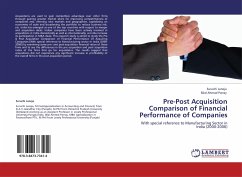Over the past 25 years, since its inception of reform and opening up policy, China has made great achievements in FDI utilization that has attracted more and more foreign investors have been using M&A transactions entering Chinese domestic market, aiming at taking over the profitable companies and winning bigger share of Chinese market. But China's strategic purpose for utilizing international M&A is to attract more FDI and to restructure China's poorly performed state-owned enterprises (SOEs), to develop their competitive ability in the international market. So the Chinese government has recognized the need to establish a modern M&A regulatory system, and has been issuing many new rules and provisions to regulate international M&A. This book focuses on analyzing the current Chinese M&A legal framework and the preliminary merger control system, especially the anti-monopoly problem, and offer some practical suggestions. The analysis should be very useful to the legal professionalsand business managers who want to entering into Chinese M&A market, or any one else who may be interested in the development of China.








